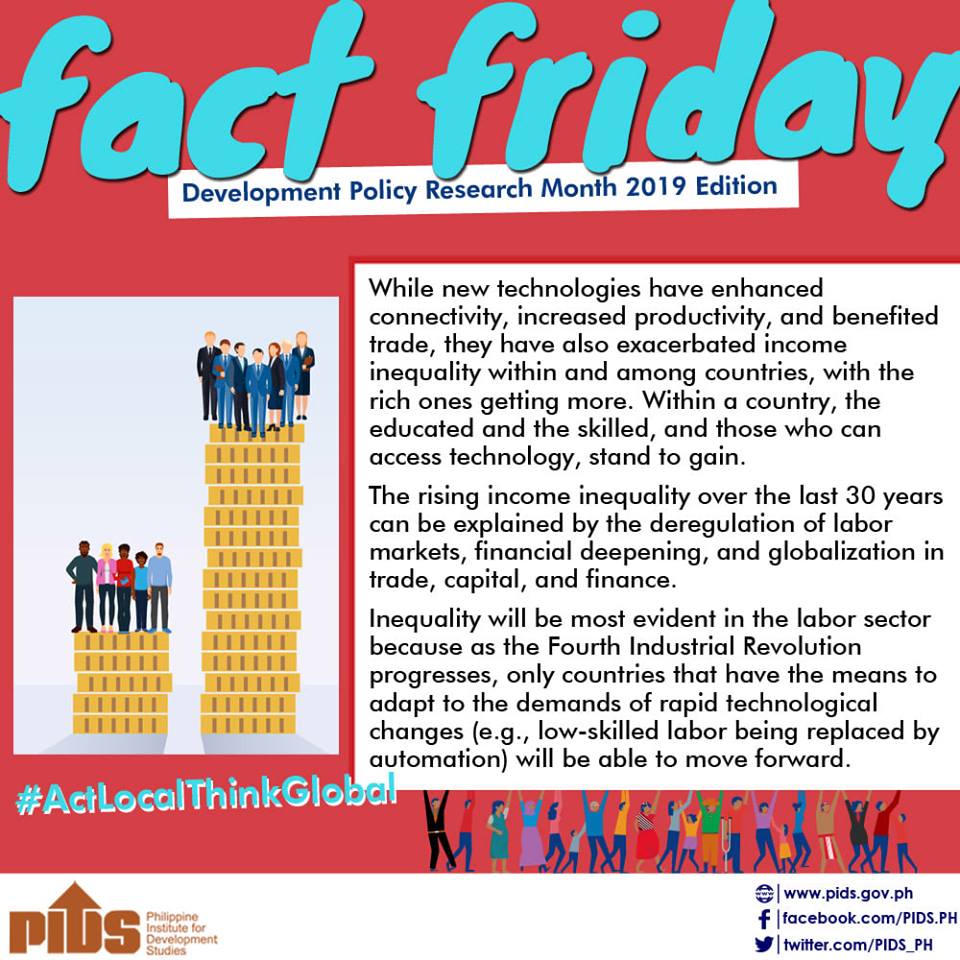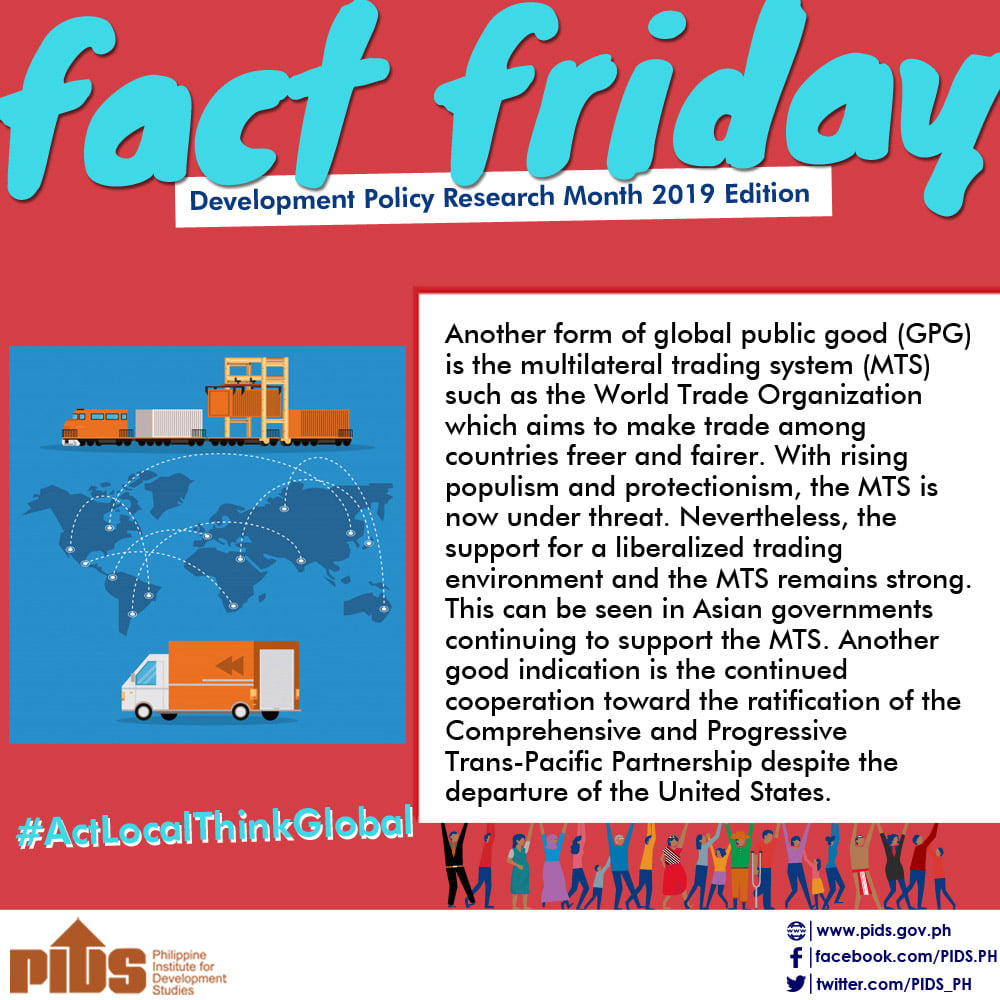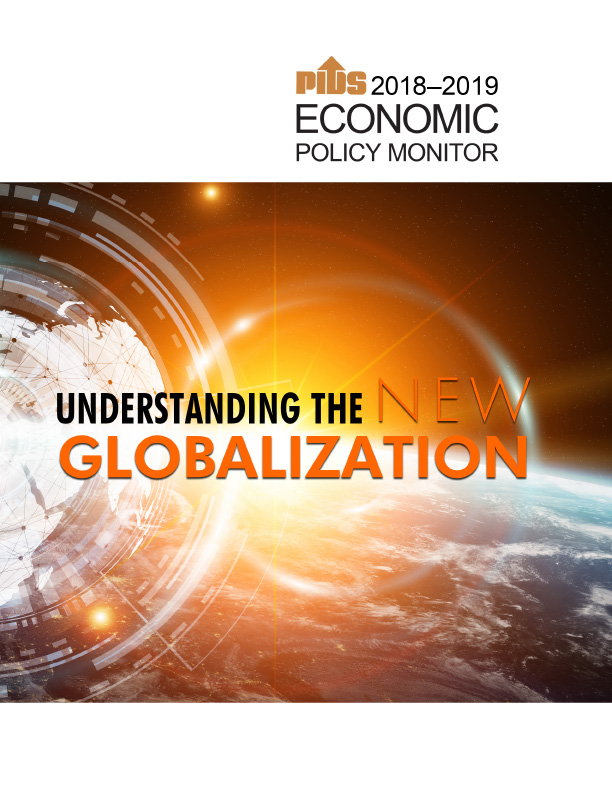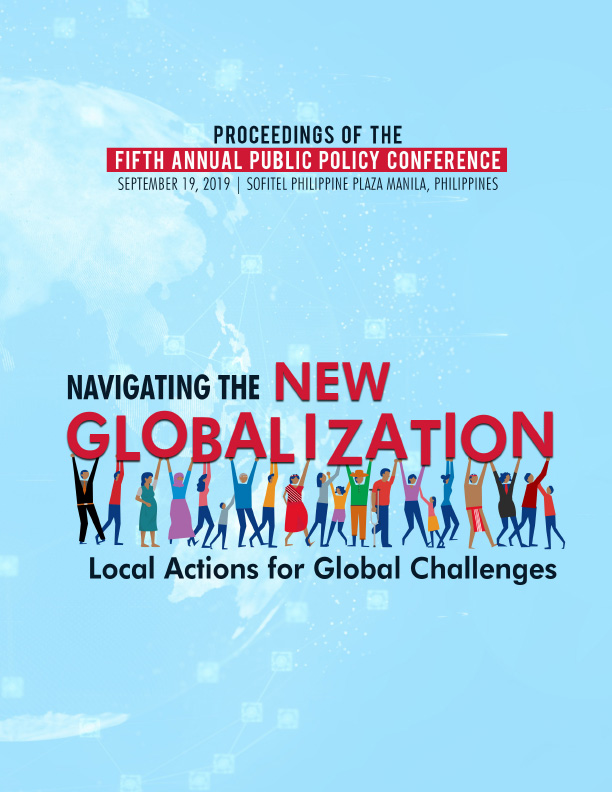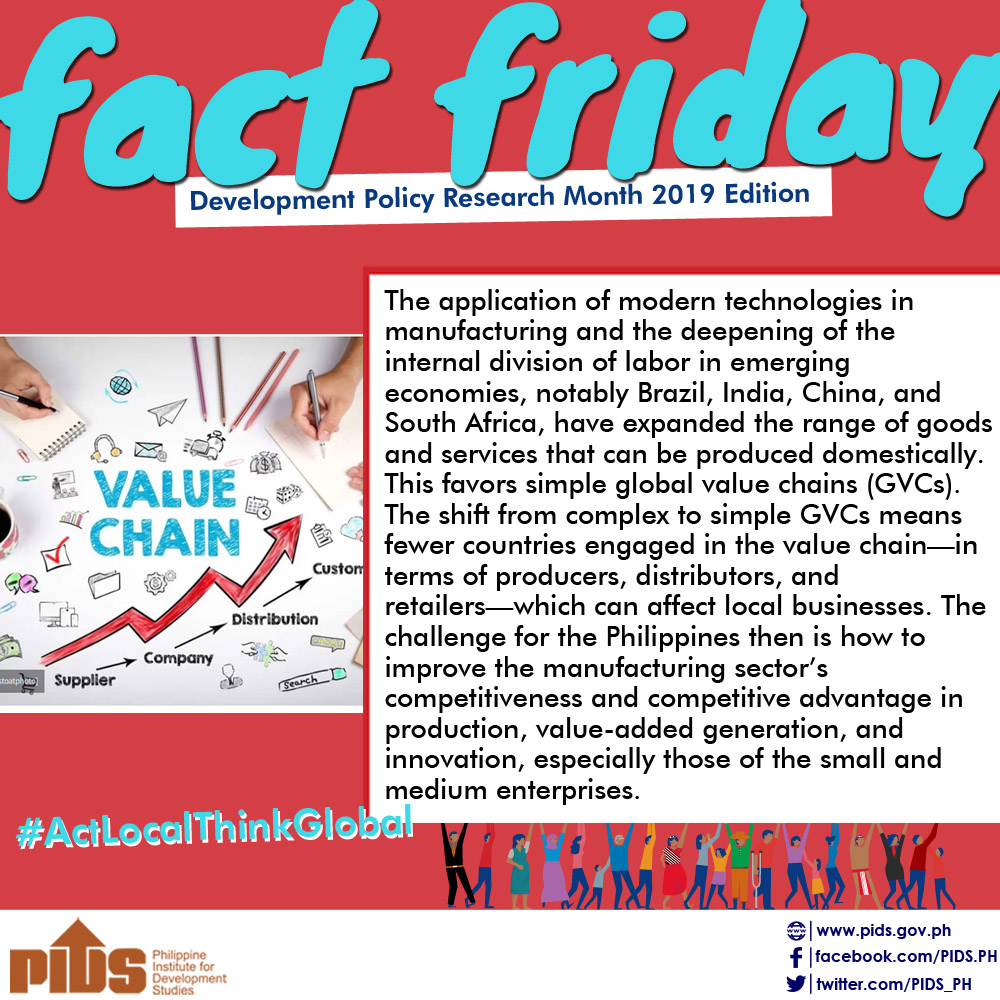
The application of modern technologies in manufacturing and the deepening of the internal division of labor in emerging economies, notably Brazil, India, China, and South Africa, have expanded the range of goods and services that can be produced domestically. This favors simple global value chains (GVCs). The shift from complex to simple GVCs means fewer countries engaged in the value chain—in terms of producers, distributors, and retailers—which can affect local businesses. The challenge for the Philippines then is how to improve the manufacturing sector’s competitiveness and competitive advantage in production, value-added generation, and innovation, especially those of the small and medium enterprises.
Know more about emerging trade structures and other features of the New Globalization, and the opportunities they bring to the Philippines, through this year’s celebration of the 17th Development Policy Research Month (DPRM) with the theme "Navigating the New Globalization: Local Actions for Global Challenges".
Visit the DPRM website (https://dprm.pids.gov.ph/) and download the PIDS study, "Understanding the New Globalization: Implications for the Philippines” (https://www.pids.gov.ph/
Know more about emerging trade structures and other features of the New Globalization, and the opportunities they bring to the Philippines, through this year’s celebration of the 17th Development Policy Research Month (DPRM) with the theme "Navigating the New Globalization: Local Actions for Global Challenges".
Visit the DPRM website (https://dprm.pids.gov.ph/) and download the PIDS study, "Understanding the New Globalization: Implications for the Philippines” (https://www.pids.gov.ph/
Gallery Images:



